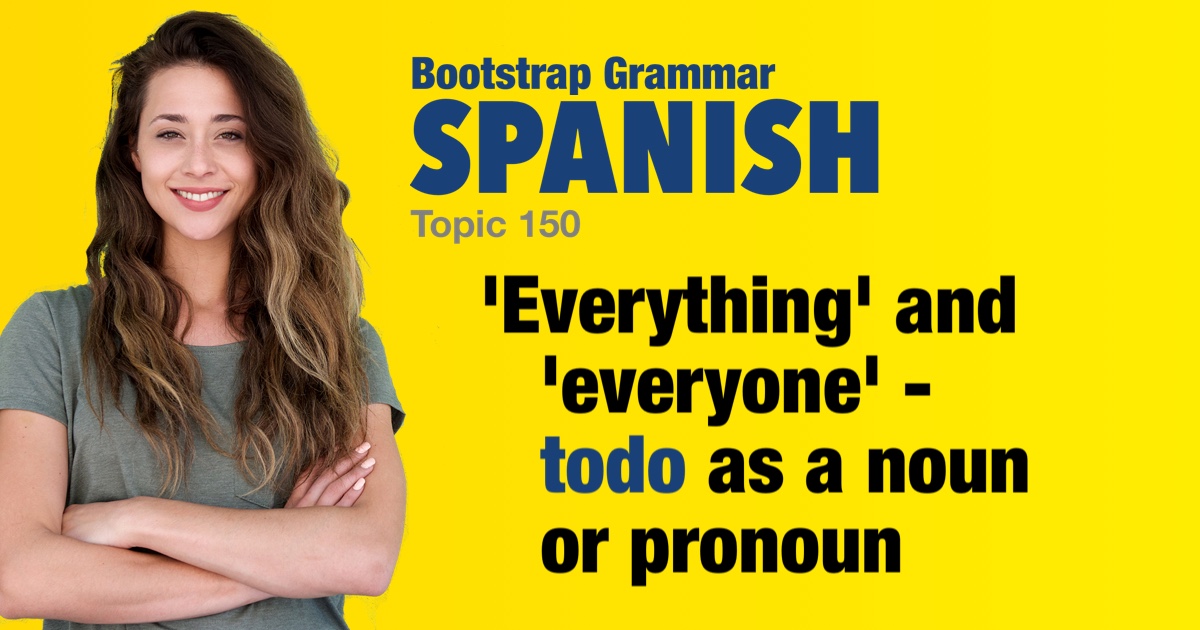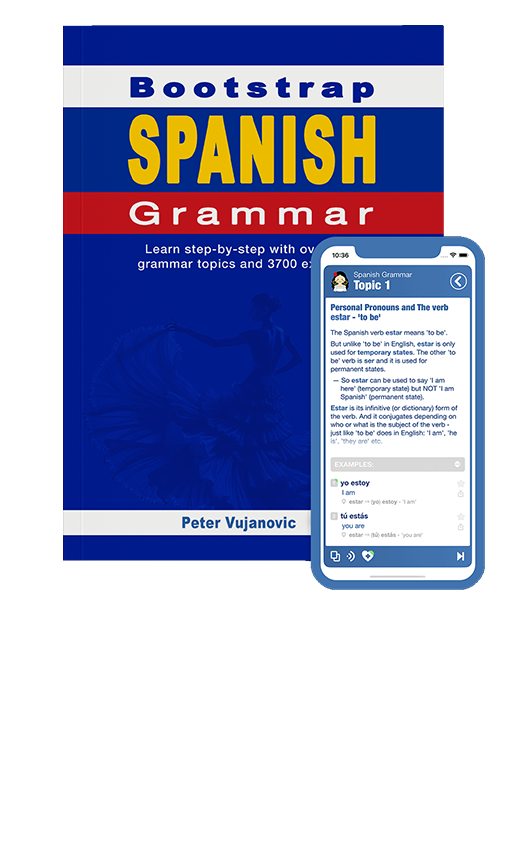Spanish grammar - 'Everything' and 'everyone' - todo as a noun or pronoun |
|||
|
|||
The word todo can be used as a noun or pronoun to mean 'all of them' or 'everything.' • todo means 'everything' or 'all of it' But when referring to people and animals todos is used. • todos is used when referring to people - 'everyone' |
| Examples: | |
|
Todo está bien.
Everything is fine. |
|
|
¿Has visto todo?
Have (you, familiar) seen everything? |
|
|
Ella quiere saber todo.
She wants to know everything. |
|
|
Juan organizó todo.
Juan organized everything. |
|
|
Nos gusta todo.
(We) like everything. |
|
|
No entendí todo.
(I) didn't understand everything. |
|
|
Hemos limpiado todo.
(We) have cleaned everything. |
|
|
Todos llegaron a tiempo.
Everyone arrived on time. |
|
|
Todos tienen que estar aquí.
Everyone has to be here. |
|
|
¿Has hablado con todos?
Have (you, familiar) talked to everyone? |
|
|
Mis amigos conocen a todos.
My friends know everyone. |
|
|
No he visto a todos.
(I) haven't seen everyone. |
|
|
Todos van a participar.
Everyone is going to participate.
|
|
|
Todos estaban contentos.
Everyone was happy. |
|
|
¿Qué hiciste con todo?
What did (you, familiar) do with everything? |
|
|
Todos necesitan ayuda.
Everyone needs help. |
|
|
Todos se fueron temprano.
Everyone left early. |
|
|
¿Por qué no invitaste a todos?
Why didn't (you, familiar) invite everyone?
|
|
 |
|



